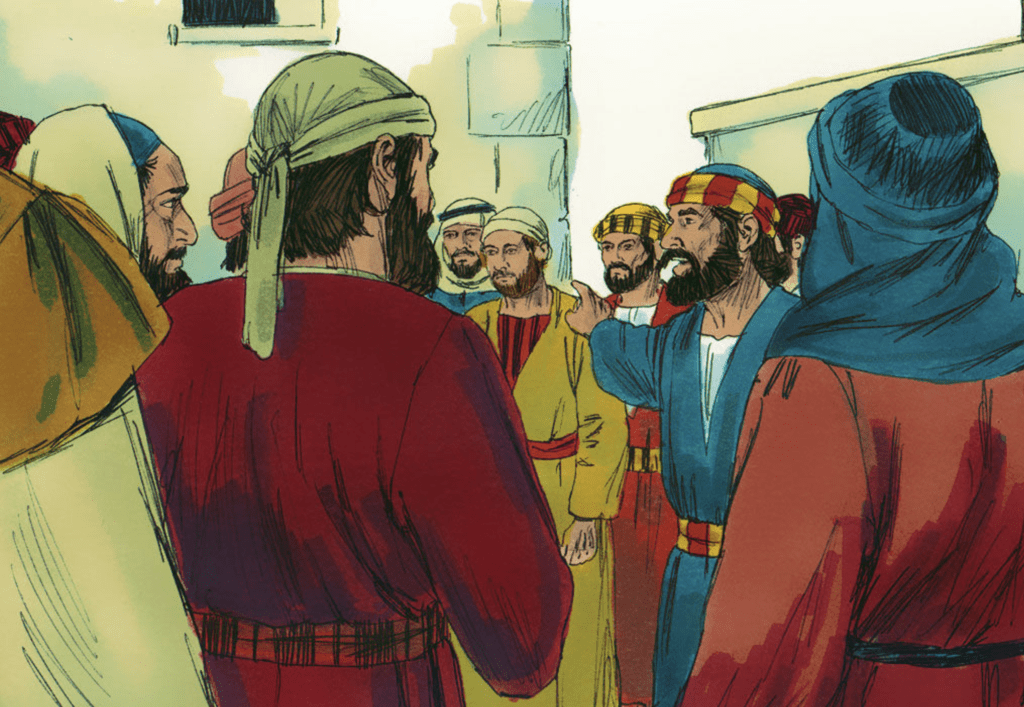Identity politics in the Early Church
The Jews could not understand how Gentiles were accepted by God without first becoming Jews. This racial divide underlies every church conflict in the book of Acts (Acts 6, 15, 21). This sounds so modern, doesn’t it? The church today continues to struggle with the superficial differences of race and national origin.
Conflict first rattled the rafters of the church just when “the number of disciples was multiplying” (Acts 6:1). Few things spoil the spread of the gospel like bitterness between believers complicated by suspicions of inequality.
One of the first manifestations of bitterness arose out of the use of money. The church collected funds for needy Christians (Acts 4:32-37), but it was not distributed equally. Widows who spoke and lived as Greeks didn’t get their daily dinner like the widows who looked and talked like the local people. This unequal care created conflict, and the conflict was intensified by “murmuring.” Division thrives when people judge others by external appearance.
A Gospel Approach to Identity Politics
Yet, the gospel offers a unique answer to this conflict.
It provides a fresh awareness that by creation each person is made in the image of God (Gen. 1:27) and is part of the same family (Acts 17:26). This unity is deepened by salvation where we experience equal fellowship in Christ regardless of our physical differences (Gal. 3:28). Jesus supersedes all our superficialities!
The pattern in the 6th chapter of the Acts of the Apostles
How will the church deal with the conflict? Will the strong bully the weak into submission? Will they settle it in court? Will they sever their fellowship? No!
Amazingly, the answer to conflict is loving service, and moving to a higher level of thinking. Einstein is frequently quoted as saying something like “No problem can be solved from the same level of consciousness that created it.” Look at just one example of how the early church community illustrated this insight.
Seven men are chosen to energize the church to serve the needs of all. They simply traced the pattern Jesus laid before them, who resolved our conflict with God by serving our need (Phil. 2:1-8).
We often read Acts 6 with a focus on the institution of the diaconate without realizing that the underlying problem was one of race, class, etc. Let’s read Acts 6 as a solution to the identity politics in the early church.
So the Twelve called together the community of the disciples and said, “It is not right for us to neglect the word of God to serve at table.
They looked at the problem from a high perspective of the universal call to ministry.
Brothers, select from among you seven reputable men, filled with the Spirit and wisdom, whom we shall appoint to this task, whereas we shall devote ourselves to prayer and to the ministry of the word.”
The proposal was acceptable to the whole community, so they chose Stephen, a man filled with faith and the holy Spirit, also Philip, Prochorus, Nicanor, Timon, Parmenas, and Nicholas of Antioch, a convert to Judaism.
They presented these men to the apostles who prayed and laid hands on them.
They were able to move on!
The word of God continued to spread, and the number of the disciples in Jerusalem increased greatly; even a large group of priests were becoming obedient to the faith.
By going to a higher level than they were used to judging by, they found a gospel truth.
Both sides enlarged their way of thinking with an understanding of the gospel they had missed. They changed their way of thinking by focusing on the underlying gospel perspective. It changed and broadened their way of thinking.
What we can learn
- Look for the underlying gospel principles in the specific issues we face.
- Be open to expanding our view of how to approach the conflict.
[This reflection is rooted in a post in the series Patterns in the Acts of the Apostles.]






Provocative quote from Einstein ….